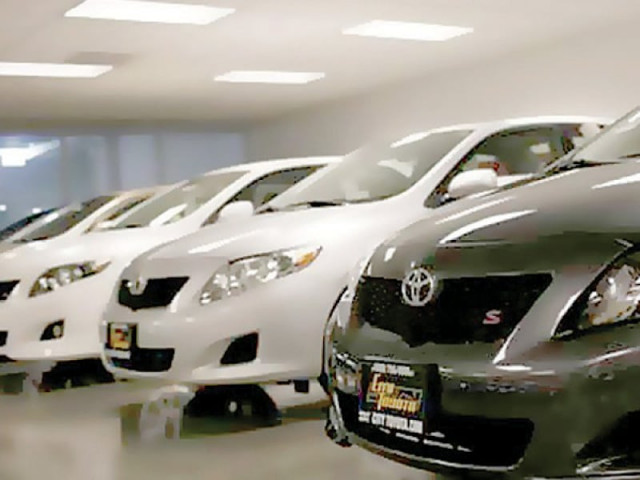Indus Motor takes lead in maximum price hike
Rupee depreciation and production costs increase prices thrice during 2013.

Indus Motor first raised car prices in June before hiking in September and November 2013. PHOTO: FILE
The minimum and maximum percentages of price increase were both seen in the vehicles of Indus Motor, a local affiliate of Toyota Japan.
The minimum percentage price increase was noticed in the price of Toyota Corolla GLI whose price tag jumped by a meagre 1.7% whereas the maximum jump was noted in the price of Toyota Hilux whose price shot up by a massive 23%.
Indus Motor first raised car prices in June before hiking in September and November 2013.
Leading its peers, Pak Suzuki Motor – the company with the biggest market share – first raised car prices in January 2013. It later raised prices in July and September 2013. The minimum price hike percentage was seen in the price tag of Suzuki Swift that jumped 3.81%, while the biggest increase was witnessed in the prices of Suzuki Liana that shot up by 6%.
Atlas Honda Cars also pushed up its prices on three different occasions. The first occurred in July before it raised prices in August and December 2013. The price of Honda Civic jumped 4.2% while the prices of Honda City increased 3.34%.
All car assemblers imported significant parts from different countries especially Japan and Thailand with rupee depreciation increasing their cost of production.
Carmakers had a difficult time from May to October 2013 during which the rupee shed almost 15% against the Japanese yen, which contracted automobile sector’s gross margins. However, the rupee gained value against yen from October to December 2013.
Car importers say local carmakers are continuously raising prices owing to the restrictions on old car imports in the country.
The government reduced the age limit of used car imports from five years to three years in December 2012, which caused a gradual decline in the import of used cars in the last 12 months and helped raise the sales of locally produced cars.
Local carmakers say the import of used cars adversely hurt their sales. However, their opponents believed that local car assemblers charge a hefty amount of money while their quality is low compared to the imported cars.
The government is due to announce the Auto Industry Development Plan 2 (AIDP-2) in the second week of the month. While the government is taking input from all stakeholders, industry officials are following the development because they will be hurt the most if government eases restrictions on used car imports.
Published in The Express Tribune, January 2nd, 2014.
Like Business on Facebook, follow @TribuneBiz on Twitter to stay informed and join in the conversation.


















COMMENTS
Comments are moderated and generally will be posted if they are on-topic and not abusive.
For more information, please see our Comments FAQ